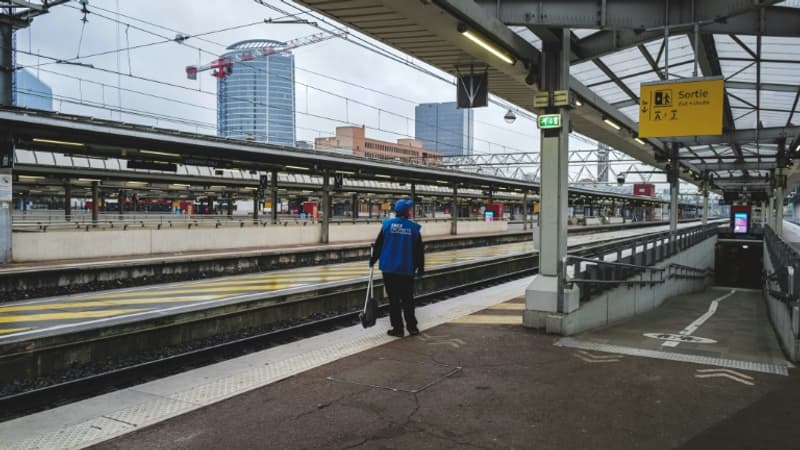The strike of the SNCF controllers led the government to a reflection unveiled on Thursday by Olivier Véran, government spokesman. At the end of the Council of Ministers, he reveals a request from the Head of State.
Olivier Véran did not give details about this “framework” which could be assimilated to a questioning of the right to strike enshrined in the Constitution. This reflection that he intended to address this strike and not create a precedent has only just begun.
A political square
The specificity of the movement that affects the SNCF this weekend is that it is not framed by unions but by a group of employees who declare themselves non-unionized and apolitical.
According to Stéphane Sirot, a specialist in social movements, it is possible that this presidential request cannot be fulfilled.
“The framework, there is one, is that of the 2008 law which was the first law passed during Nicols Sarkozy’s five-year term on the so-called guaranteed service. As soon as a movement is massive enough, it has very strict limits.” recalls this BFMTV specialist, warning that going further would amount to “limiting the use of the right to strike”.
Three solutions?
Three solutions would be technically possible to prevent this situation from repeating itself. But neither would really have a chance to succeed.
This option would be the most delicate to implement since it is a constitutional right that runs the risk of generating strong opposition from political parties, unions and any citizen adhering to this legislation.
Can a strike like the one started by an anonymous group of controllers outside all the trade union centrals be part of an exceptional regime and in what way? It is difficult to imagine that the opposition or the unions let a text pass that runs the risk of opening the door to abuse and dividing the presidential majority. What would be the exceptions? Which employees would be affected? In which sectors? What time in the year? So many unanswered questions.
It would be a matter of adding in an employment contract or in the collective agreements of certain companies to bend to respect a minimum service. This obligation already exists at SNCF. In Île-de-France, at least 30% of daily connections must be guaranteed and, if this is not the case, the company is exposed to financial penalties. And it is clear that this device does not work because if the number of strikers is high, the SNCF cannot requisition personnel, not even to provide a public service.
And even if it could (which is not the case), neither could it since, unlike the strikes at the refineries, the one at the SNCF does not affect all French people. “Only” 200,000 people have seen their train canceled and the reduction in the transport offer observed does not affect public order. If the State made requisitions, it would surely be dismissed by the administrative court.
Source: BFM TV


